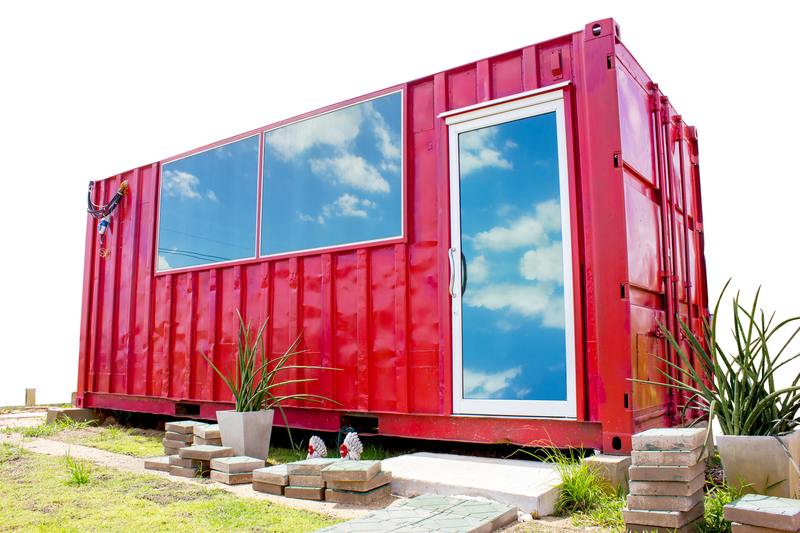Easy Home Recycling Tips
Posted on 26/05/2025
Recycling has become a crucial practice in our world today to help protect the environment. Despite the increasing global awareness about waste management, many people still find themselves at a loss on how to recycle effectively and efficiently at home. This article will provide you with some easy home recycling tips that can make a substantial difference without requiring extensive effort.
Understand What Can and Cannot Be Recycled
The first step in home recycling is knowing exactly what materials can and cannot be recycled. Not all plastics, metals, and papers are recyclable, and contaminating your recyclable waste with non-recyclables can cause whole batches to be diverted to landfills. Generally, paper, cardboard, glass bottles, aluminum cans, and specific plastics are recyclable. However, items like plastic bags, polystyrene foam, and greasy pizza boxes are usually not recyclable through curbside programs.

Set Up a Simple Recycling System at Home
Creating an efficient recycling system at home starts with setting up designated bins for different types of recyclable materials. Having separate bins for paper, plastics, metals, and glass in an easily accessible area like the kitchen or garage can make sorting much simpler. Labeling the bins clearly and perhaps adding a small infographic about what can and cannot be recycled might help guide all household members.
Clean and Dry Your Recyclables
One common mistake many people make is tossing dirty items into the recycling bin. Residual food, liquids, and oils can contaminate whole batches of recyclables, making them unsuitable for processing. Always rinse out cans, bottles, and jars before placing them in the recycling bin. Allowing them to dry can further help prevent issues during the recycling process.
Reduce and Reuse Before Recycling
While recycling is imperative, reducing and reusing are even more effective at minimizing waste. Consider buying products with minimal, recyclable, or reusable packaging. Opt for reusable items like glass containers instead of single-use plastic bags or cling film. By reducing your overall waste production and reusing materials whenever possible, you significantly lessen the burden on recycling systems.
Explore Local Recycling Programs and Guidelines
Every city and town have different rules and facilities for recycling. It's important to acquaint yourself with the local guidelines regarding what items are accepted, the schedule for recycling collection, and where your local recycling center is located. Some areas offer special services like electronic waste collection or recycling for hazardous materials. Make the most of these services to ensure you are recycling as efficiently as possible.
Start Composting
Food scraps contribute significantly to household waste. Composting is an excellent way to recycle organic waste while enriching the soil in your garden. Items like fruit and vegetable peels, coffee grounds, eggshells, and yard clippings are compostable. Invest in a compost bin and place it in an accessible location to encourage kitchen waste composting. Regularly turn the compost to facilitate decomposition, and in time you'll have rich compost material for your garden.
Participate in Community Recycling Events
Local communities often organize recycling events for items that can't be picked up curbside, such as electronics, batteries, or hazardous household substances. Participating in these events will ensure that your non-typical recyclable materials are disposed of correctly and recycled appropriately. Keep an eye out for local notices about such events and mark your calendar.
Buy Recycled Products
Your recycling efforts come full circle when you purchase products made from recycled materials. Many manufacturers are now offering products made from post-consumer recycled materials, including paper goods, clothing, and even furniture. Supporting these companies not only keeps the demand for recycled materials high but also encourages the development of more sustainable manufacturing practices.
Teach and Involve the Entire Family
Recycling is not a one-person job, especially in a household setting. Engage your entire family in the process. Educate your children on the importance of waste reduction, proper recycling habits, and even fun facts about how recycled materials are transformed into new products. Make recycling a household activity where everyone has a role, thus instilling a sense of responsibility and teamwork.

Repurpose Household Items
Get creative and think about ways you can repurpose household items before recycling or throwing them away. Glass jars can become storage containers, old t-shirts can be used as cleaning rags, and cardboard boxes can be transformed into organizers. This mindset reduces waste and gives new life to items that would have otherwise been discarded.
Monitor Your Progress
Regular monitoring and tracking can help improve your home recycling efforts. Take note of the types of items you're recycling often, and look for ways to reduce or reuse those specific materials. Set short-term goals for reducing waste and increasing recycling, and reassess your methods periodically to see where improvements can be made.
By incorporating these easy home recycling tips, you can make a significant positive impact on the environment. Remember, every small effort counts, and when multiplied across communities, these actions can lead to substantial change. Start today, and make your home a beacon of sustainability and environmental stewardship.
Latest Posts
UK Rubbish Removal: How It Operates
Creative Ideas for Reusing Wrapping Paper










